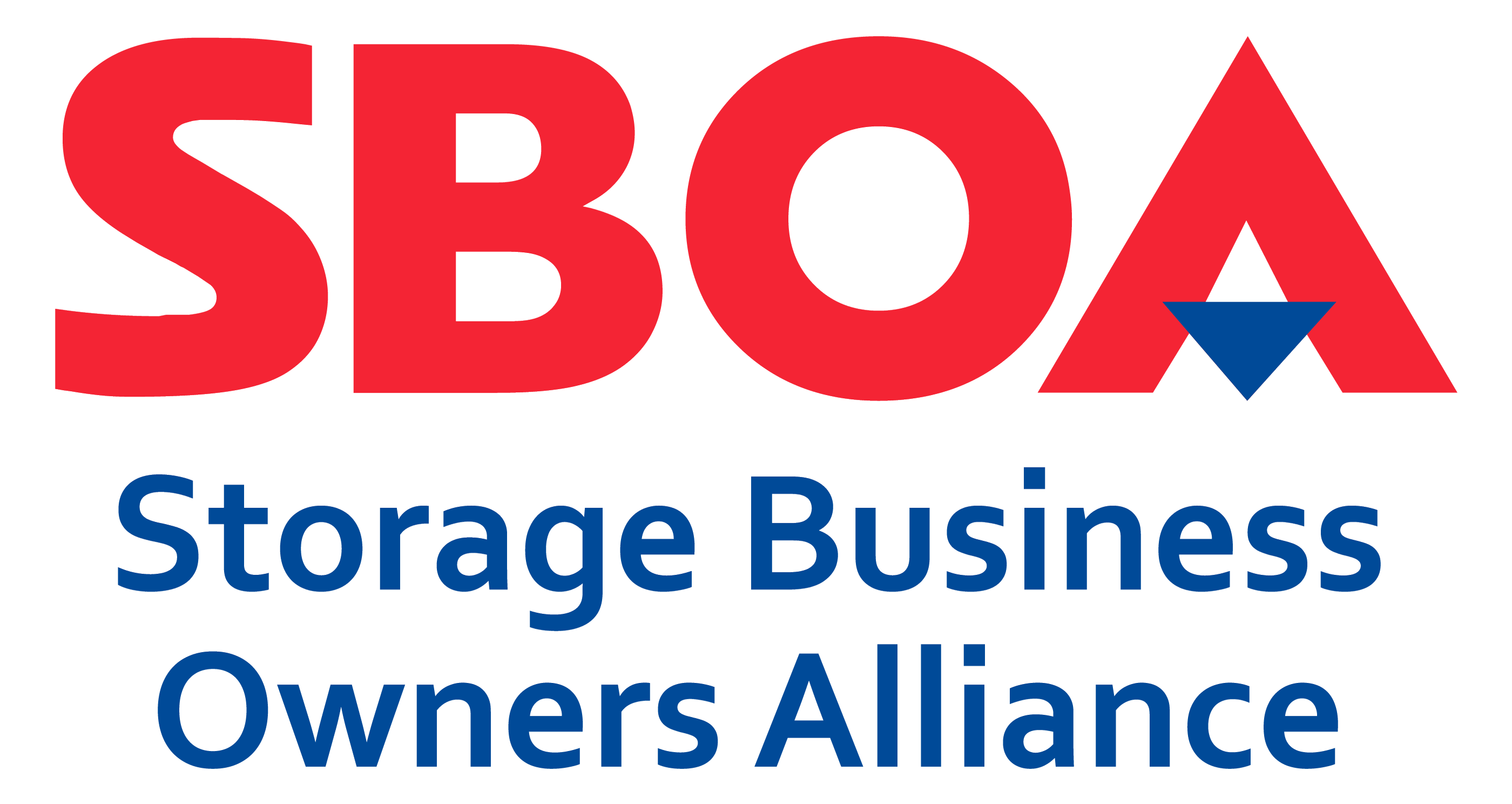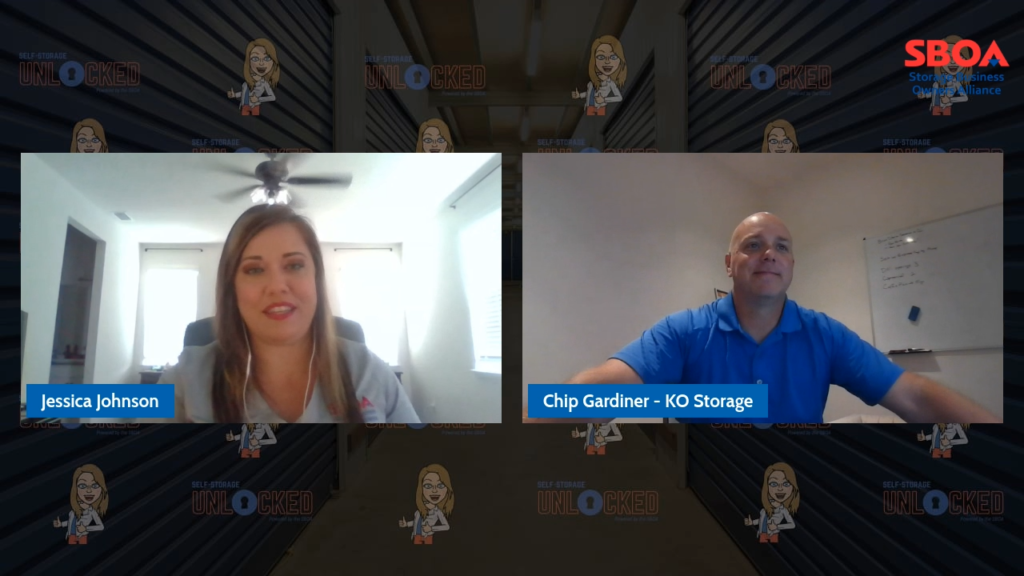KO Storage is still fairly new to the self-storage industry. Having only started in 2016, KO Storage has really grown their company, and that is in part due to the leadership of KO Storage President, Charles Gardiner. Gardiner joined SBOA Vice President Jessica Johnson for another episode of Engaging with the Experts, as part of the Self-Storage Unlocked webinar series. Gardiner discusses a variety of topics, including, KO Storage’s explosive growth, why it’s smart to get involved in your community, and tips for building a great culture in a successful self-storage business.
The following interview has been edited and condensed for clarity. View the full video here.
You are currently in 14 states with 98 locations, with the bulk of that being within the last two years. Can you explain how you’ve had such explosive growth within such a short timeframe?
It happened roughly five years ago. The partners had an e-commerce business where they were making money and had some money to invest, so they decided to invest in self-storage. They found an opportunity in Black River Falls, WI and they still have the picture of that location, which started the whole thing. And at that time, they were the business – from cleaning of the spaces, answering phones, auctions, adjusting rates, lock cuts, etc. They did well with their investment, so they bought another and another, and pretty soon this cute little business that started off as a side hustle started to emerge.
You had a pretty large fitness career before you transitioned into self-storage. Walk us through how you went from fitness to self-storage, and what drew you into self-storage?
I was in fitness for 14 years. At the time, the company I was with had gone through several levels of bankruptcy. And I’m not one to jump ship, although I probably should have. I stayed with it and went down with the ship. In that process, I was forced to change careers, which is very difficult to do after you’ve spent 14 years building and developing relationships and networking in a community. As I left that, I interviewed with Public Storage. And the only reason I interviewed with Public Storage was to work on my interviewing skills – I had not been on that side of the desk for quite some time. So, I started interviewing and the more I found out about the self-storage industry, it became very intriguing to me. Especially as somebody coming from a company that had gone through bankruptcies, I wanted to find something that was high cash flow, and I landed dead on in self-storage.
I had started with Public Storage and started learning the business and fell in love with the business, along with the community. I’ve been blessed to have come across a lot of great leaders that have been in the business from the beginning, and I’m able to now share some of that knowledge.
When you first came into self-storage, what were some of the least anticipated things that occurred?
The items that people store always amazed me. I just never understood the need to keep such random items and people pay to keep those random items. But, my business acumen grew in regard to self-storage and why the tenants store what they do. Not by reading statistics or anything like that. But through the years of just speaking with customers and hearing their stories, feeling their pain, sharing their joy, and truly understanding what may not seem valuable to me, has a story, and has a great value to someone else. I’ve learned to not take that lightly.
That was early on, but what I learned in the past year is still dumbfounding to me and yet completely understandable. I was amazed when it was deemed last year, in 2020, that self-storage was an essential business during the pandemic. My initial thought was how can that be possible. But then it became blatantly obvious with snow vendors who store their tools with us, and medical reps who store supplies, as well as cleaning companies. The list goes on and on.
For a new self-storage owner and operator, what are the pro tips you would give them?
For any new owner or operator, they should first research the industry – podcasts, books, or interviews like this. There are so many great tips for new and tenured operators. At KO Storage, we have three partners, so I’ll tell you what I think each of them might say.
Andrew would say as a new operator, make sure you’re picking up the phone. Andrew often reflects on his time when he started the company. He would take random phone calls in the middle of the night, in the middle of a meeting, whatever he was doing. And his thoughts are that our customers need to know that you’re there for them. You’re not always going to have the answer they’re looking for at that time, but when you’re listening to those customers and working towards the resolutions, your customer is going to take care of you.
John is going to tell you to buy right. As a new operator, he’s going to make sure that you buy right as you choose your path and find opportunities. Basically, you want to find an opportunity that even if you screw up, you can still make money. If you’re going to ask operators, they will tell you some of the best purchasing decisions that they made were the sales they passed on.
The third partner, Ryan, is going to say find the right people. People who share your vision and passion for the business is key, especially if you tend to gain scale, which is what KO is working towards right now. Don’t be afraid to ask for advice. There are extremely smart people in the business. If you’re the smartest person in the room, you’re in the wrong room. You need to find people who inspire growth within yourself and within your business.
KO Storage is coast to coast. When you’re looking at a new market, what is drawing you into that market?
There are so many boxes you can check for this, including your population growth, rentable square feet, economy, land to build, optimizing rates, what the competition is, if we’ve already planted a flag, and much more. At the end of the day, just run the numbers and make sure that you will make profit. As a I mentioned earlier, find something that even if you screw a few things up, you’re still going to make money.
What tools do you recommend an operator uses to help differentiate themselves in the market?
Number one is community. As operators, we have the ability to make a difference in each of our communities. For any new acquisition, where we’re new to the area and the property, you should think of the customer and what their thoughts are. They have a new owner with a new lease, new rules, new hours. Change is difficult for anyone, but how we help manage that change is going to be the key. Finding ways to get involved in the community, sponsoring local teams, finding a charity that you believe in, finding events that you could attend and interact with the community will help with your external customers. I guarantee by doing these things you will help pave the way for your internal customers. It just helps create a culture that your team will be proud of and proud to work for.
At KO Storage, we sponsor a lot of local teams. It starts with the three partners and their ability to give back. For the local teams we’re a part of, it’s just good to get into the communities. One thing that Andrew will say is whenever we go into a new market, our first calls need to be to the local fire department or local police department and let them know that we’re here and see if there’s anything we can do to help seek our opportunities. Don’t wait for opportunities to come to you – seek out those opportunities.
Walk me through how KO Storage is building up culture and why culture is so important to everyone at KO Storage.
It’s all about the culture and the growth. Having a welcoming and inviting workplace creates levels of collaboration amongst our team members. Because of the culture and the environment that we’re in, it allows for a collaborative effort to work with each other. We are moving to a new office location that we purchased back in May, and it should be ready to go sometimes in the next few weeks. What we want to do is maintain that culture as we go into the new space. So, you’ll see instead of the one kitchen area or the one lounge area, you’re going to have one for each level, as well as more meeting rooms for those collaborative efforts. It’s worked for us so far, and it’s fun. I love coming to work. I love coming to this office and seeing this family that I have that’s away from my actual family. If we spend so much time together, there’s no other way to look at it then this is part of your family.
KO Storage has a little bit of a different structure than others in this space. You have about 15 agents and an internal communications center. And then a decent amount of your portfolio is what we would consider unmanned. Talk me through why you guys decided to go that route and how it’s working for you.
Efficiency is going to be the key. And it’s the environment we’re in as well. It allowed us to pivot very quickly during the pandemic here at KO Storage. We have 15 agents at the call center, which we call the communication center simply because they’re doing so much more than making calls – they are communicating via email, they’re talking to these customers on the phone, and they’re sending out letters. Anything that has to do with the communication with our customer is what they’re doing. And that group is the lifeblood of our company because they communicate not only with the customers, but they also communicate with the facility managers in giving direction on what needs to be done. And it’s all done remotely. I would say five months ago we only had five or six agents, and now we’re at 15. It’s growing very fast. It’s growing exponentially along with the growth of our company. That’s all part of our business model and our business plan.
What are some other tools that you would recommend to a new owner or operator that they indoctrinate into their policies and procedures and how they operate?
Tech is always important. There are so many options for us to choose from in regard to tech. We use Chuck from Storable. They’re fantastic partners for us. As I mentioned earlier, do your own due diligence – find out what works for you. There’s other options and companies that are out there. But tech is needed for today’s self-storage economy. If you have the opportunity to speak with Andrew at any time, he’ll tell you what KO Storage is in detail. His belief is that KO is a tech company that utilizes storage as our platform. It’s an interesting concept, in my opinion.
The other needed tool is that you must have the right people on your team to successfully attain and retain your customers. When you have the KO mindset instead of your typical real estate mindset, which is location, location, location. Our model is staffing, staffing, staffing. It’s always the problem and always the solution for any challenges that you may be facing. And those two things companied, right technology and right people, put you in a very successful situation.
What are some other tools that you would recommend to a new owner or operator that they indoctrinate into their policies and procedures and how they operate?
It really depends on the day, the week, the month, the hour, and even sometimes the minute. It also depends on which department you’re referencing – economic occupancy and occupancy, delinquency, uncollected rent, call volume, etc. If we’re talking call center communications that would include percentage of calls, average call times, your digital advertising clicks. For the business itself, it can get more complex as you allow it to. If I had to narrow down, I would say driving occupancy and economic occupancy. That piece of it is going to keep you engaged in driving your business. If you’re engaged in driving your occupancy, you’re always going to be focused on the move-in/move-out net rental activity. Your economic occupancy will engage you in the pricing structure. And that’s really your ears to listen to what’s driving the consumer to your product.
For yourself and in your career, what are those top attributes that have made you successful thus far?
You must work hard. I know it’s cliché, but I think of John, Andrew, and Ryan and the work that they put into their businesses. They had a dream and a vision of what they could accomplish. Then they put their heads down and worked tirelessly to achieve them.
I tell my kids the same thing in school, their jobs, sports, friendships: work hard for what you want. If it’s worth having, it’s worth working for. Ask for help and network. That’s great to do in this industry because it’s full of successful people that are willing to give guidance and direction to anyone. It’s not always true in all industries, but for some reason, this is a very tight knit community of self-storage people and they freely and openly offer up their knowledge and experience. And if you don’t believe me, go to the ISS Conference in Las Vegas and just start asking questions. You better get your beer first because you’re going to be talking to some people for a while.
The final thing I would say is be prepared. Take time to write down your vision and plan for execution of your thoughts. Prepare for the unexpected, prepare for rental season, prepare for a meeting, and prepare for opportunity. At the end of the day, I think that’s the definition of success – when preparation meets opportunity.


